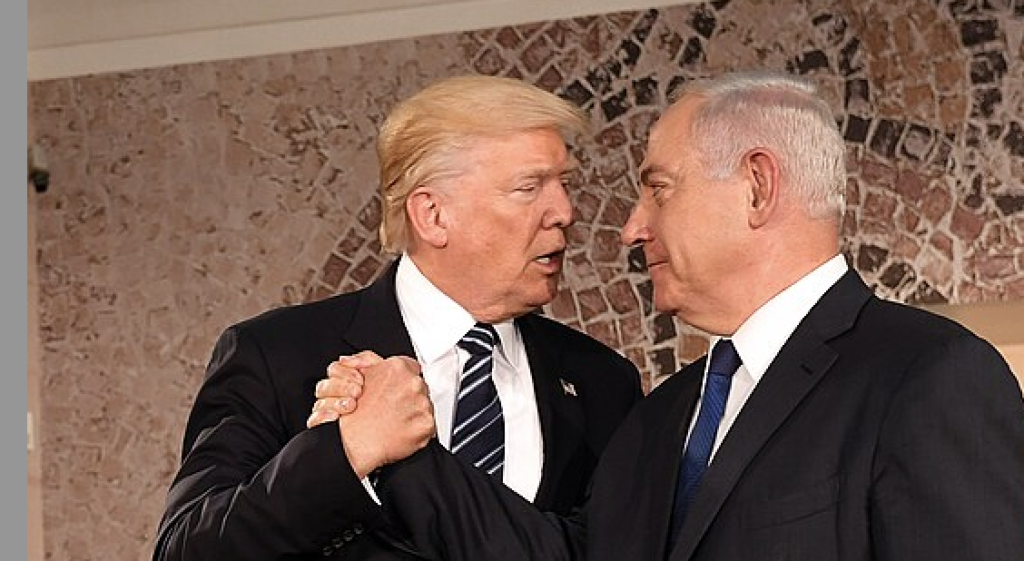Will Trump bring peace to the Middle East?

Ghassan Rubeiz / Arab America Contributing Writer
Throughout his campaign, Trump called for ending the wars in the Middle East and in Ukraine. Few took him seriously, given his record on peace and justice. How does Trump’s victory really affect the war in Gaza and in Lebanon?
The war grinds on. Israel’s armed forces are facing formidable resistance from Hezbollah and Hamas. Despite Israel’s progress, IDF war fatalities are rising, and Israel’s military cannot go on fighting indefinitely. Israel short on soldiers after year of war and as it opens a new front in Lebanon. But Prime Minister Netanyahu still does not feel politically secure enough to engage in genuine dialog with the adversary.
Since he won the election, Trump has had three telephone conversations with Netanyahu about ending the war and dealing with Iran. Trump has serious disagreements with Netanyahu on how to handle Iran: Netanyahu dreams of a US-backed war with Iran to eliminate a major “source of instability”, while Trump would rather influence Tehran’s behavior through increased sanctions.
Reactions in the Middle East to Trump’s victory have been cautiously optimistic, largely out of anger with President Biden for defending Israel’s brutality in Gaza. Arab world leaders congratulate Trump on victory. Palestinian Authority President Mahmoud Abbas sent a letter of congratulations to Trump last week. He asked for US support for the establishment of a Palestinian state and expressed his hope to see the war in Gaza stop immediately. Hamas also immediately expressed a willingness to work with President Trump.
Encouraged by his sweeping victory, Trump will take his time to plan for ceasefires in Gaza and Lebanon, but he will probably want peace to occur on his own watch: ideally, in late January. Biden also would like to time any Mideast ceasefire to suit him politically. He may thus rush to facilitate a ceasefire before Trump’s inauguration.
A ceasefire will depend on Iran’s cooperation regardless of when it occurs. On the battlefront, things are not moving the way Iran had hoped; Iran’s President Masoud Pezeshkian has made it clear that he wants to improve relations with Washington by starting talks on its nuclear program and its interests in the Middle East. Who is listening?
But could Trump bring lasting peace to the Middle East? Of course, it is much easier to broker a ceasefire than to lay the foundations of lasting peace. The will to engage in an honest peace process has been absent for decades, although the outlines of a durable solution are not hard to discern.
For a lasting regional peace, things have to change on all fronts, starting with the United States’ one-sided approach. Israel views Iran’s clerical hierarchy as an evil structure; meanwhile, Israel insists on being an exclusively Jewish state. Under an extreme-right Israeli government, it is hard to see a Palestinian state emerge and even harder to imagine Palestinians coexisting with Israelis in any form of statehood. Finally, as long as Arab states are constantly searching for legitimacy and security, it is hard to envision any sort of enduring regional accord.
The brutality of the war in Gaza, the annexation of the West Bank, and the brutal invasion of Lebanon make it clear that real peace is far away. With Trump back in power, prospects for a ceasefire in the Middle East may improve, but only on the surface.
Ghassan Rubeiz is the former Middle East Secretary of the World Council of Churches. Earlier, he taught psychology and social work in his country of birth, Lebanon, and later in the United States, where he currently lives. For the past twenty years, he has contributed to political commentary and delivered occasional public talks on subjects related to peace, justice, and interfaith. You can reach him at rubeizg@gmail.com
The views and opinions expressed in this article are those of the author and do not necessarily reflect the position of Arab America. The reproduction of this article is permissible with proper credit to Arab America and the author.
Check out our Blog here!









